Irish immigrants played a significant role in the American Civil War, fighting on both sides of the conflict. I have blogged about 4 Irish Related Civil War Items and St. Patrick’s Day During the Civil War. For this St. Patrick’s Day, I will explore the contribution of Irish immigrants during the American Civil War, and the impact this had on their communities in both the United States and Ireland.
Irish Immigration to the United States
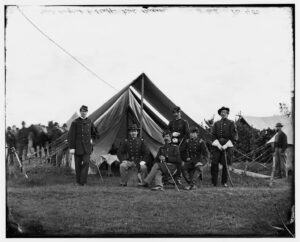
When the war began, many Irish immigrants saw an opportunity to prove their loyalty to their adopted country. They also hoped that by serving in the military, they would be able to gain acceptance and respect from the wider American society. Despite facing discrimination and prejudice from some quarters, the Irish played a key role in the Union Army, with some estimates suggesting that they made up around 20% of the Northern forces.
 The Iron Brigade
The Iron Brigade
One of the most famous Irish units was the Irish Brigade, which was formed in 1861 by Thomas Francis Meagher. The Brigade was made up of Irish immigrants from New York, Massachusetts, and Pennsylvania, and it quickly gained a reputation for its bravery and fighting spirit. In his book “The Irish Brigade and Its Campaigns”, historian D.P. Conyngham described the Brigade as “one of the most remarkable military organizations ever mustered into service.”
The Irish Brigade fought in some of the most intense battles of the war, including Antietam, Fredericksburg, and Gettysburg. At Antietam, the Brigade suffered heavy losses, with over 500 of its men killed or wounded in a single day. Despite these losses, the Brigade continued to fight with distinction, and it became one of the most celebrated units of the Union Army.
The contribution of Irish soldiers to the Union cause was recognized by President Abraham Lincoln, who praised their bravery and loyalty. In a letter to Meagher, Lincoln wrote: “The services of your Brigade on many fields have been conspicuous, and I have no doubt that in the future, as in the past, they will sustain the reputation they have already earned.”
Confederate Irish
The Irish also played a significant role in the Confederate Army, with some estimates suggesting that as many as 20,000 Irish-born soldiers fought for the South. Many of these soldiers had emigrated to the United States before the war and had settled in the southern states, where they had become part of the local communities. They saw the Confederacy as a continuation of the struggle for Irish independence and were attracted by the promise of land and other incentives.
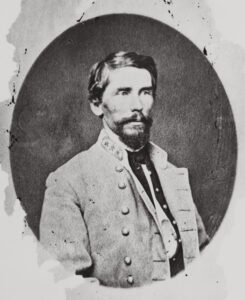
Despite their loyalty to the Confederate cause, Irish soldiers in the South faced many of the same challenges as their counterparts in the North. They were often discriminated against and faced suspicion from their fellow soldiers. In his book “The Irish in the Confederate States of America”, author Sean Michael O’Brien writes: “Irish Confederates were regarded with a mix of curiosity and suspicion by their fellow soldiers.”

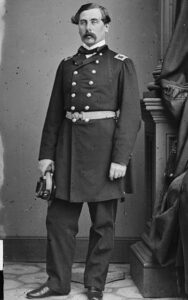 The Iron Brigade
The Iron Brigade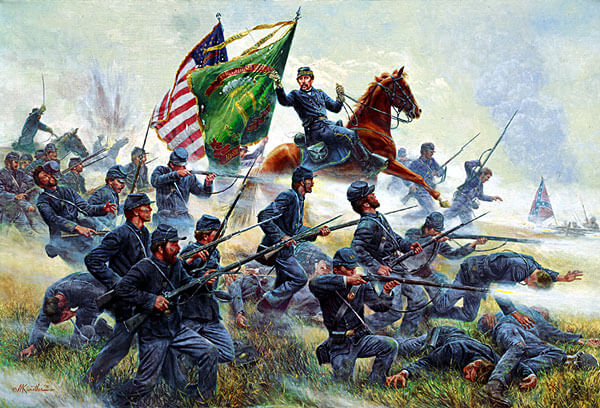
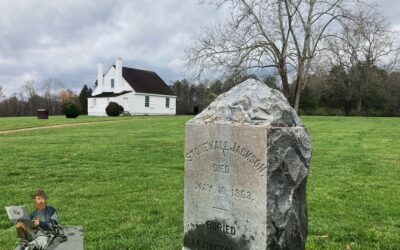

0 Comments